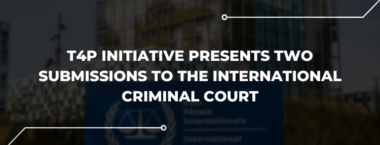
Torments, Torture Chambers, Executions: T4P Initiative Presents Two Submissions to the International Criminal Court
Information about extrajudicial executions of Ukrainians by the Russian military and Russian torture chambers in...
28 September 2023
Last week, Kyiv hosted the International Conference “Post-Conflict Justice in Ukraine.” Alina Pavliuk, a lawyer of the Strategic Litigations Center of the Ukrainian Helsinki Human Rights Union, attended almost all the events and shared her impressions.
Legal practice often proves how theory is far from practice. However, each time new challenges show that it is almost impossible to perform a real task without scientific fundamentals. On May 26-27, 2017, in Kyiv, the international scientific conference “Post-Conflict Justice in Ukraine” was held. Leading international law experts from Ukraine, USA, Australia, Azerbaijan, the United Kingdom, Denmark, Italy, Kazakhstan, Canada, the Netherlands, Germany, Norway, France, Croatia and other countries joined to participate in the event. The conference was made possible thanks to the join efforts of the Ukrainian Helsinki Human Rights Union, the European Society of International Law and the Ukrainian Association of International Law.
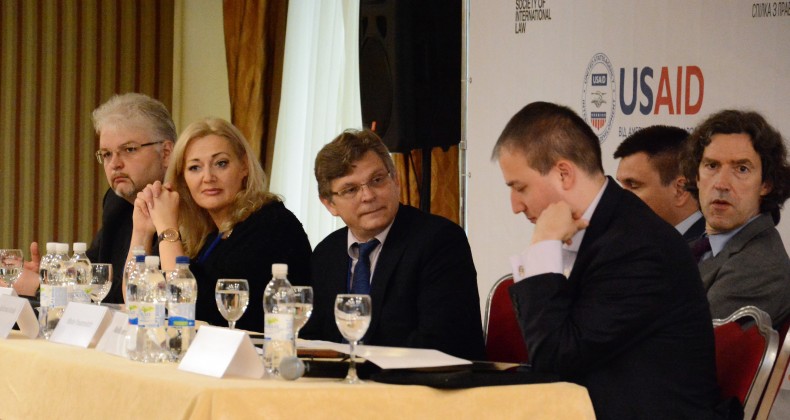
Philippe Sands, British QC and Professor at the University College London, set the mood of the event. His speech about the book “East West Street” and the movie “My Nazi Legacy” inspired all participants to work fruitfully in the coming days. Words said by Philippe Sands were repeated by different speakers during their speeches at the conference.
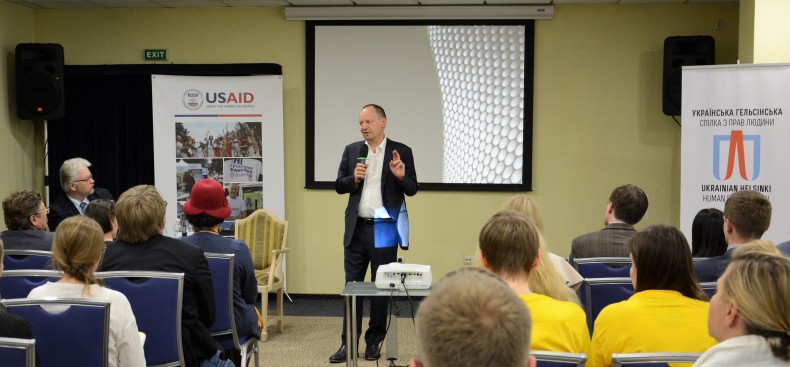
Another significant event was the lecture of Albert Sachs, a former judge of the Constitutional Court of South Africa. The participants will remember him as an outstanding man with an incredible personal and professional history. His emotional speech revealed the concept of justice as a process to restore links between people. The example of Mr. Sachs changes the view of the truth and reconciliation. He forced all participants to think about how it is important to remember that every victim of a crime is, first of all, a human and humanity depends on everyone around the human, on those who are next.
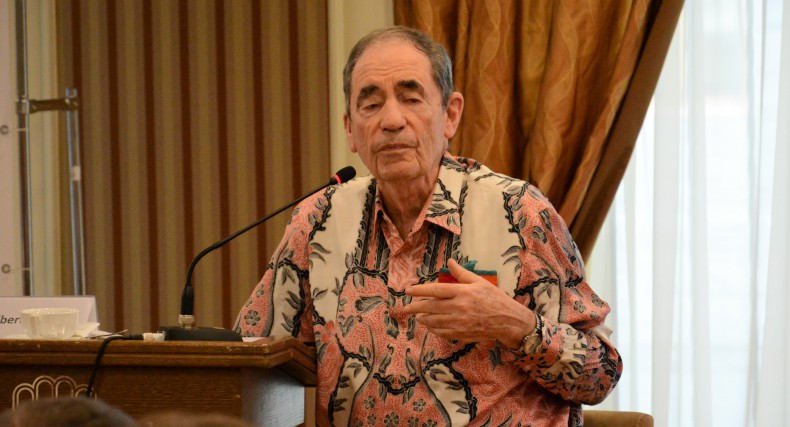
In turn, Cherif Bassiouni, Professor at the DePaul University and outstanding personality in international law, shared his view of international criminal justice. He stressed how important is to build a national system of crime investigation and administration of justice. Fairness is appreciated, primarily within the state, and then one should go to the international level. Despite his health state, Professor Bassiouni personally met with the participants of the conference, which was a precious gift to all.
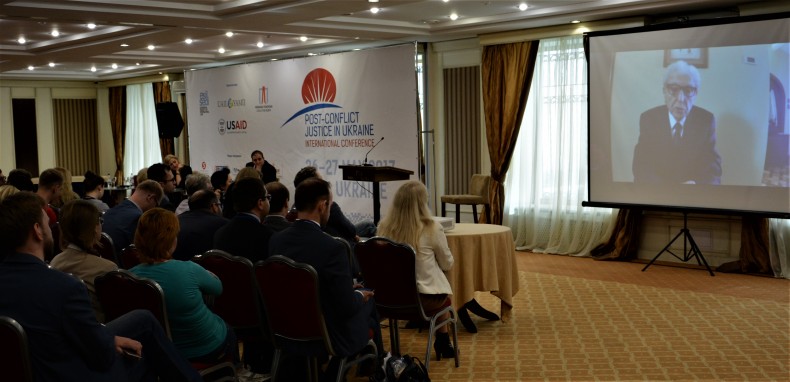
Every conflict in the country is a challenge to society. The future of the state is dependent on the country’s and the world community’s response to the challenge. Therefore, in order to look at the current situation in Ukraine from the perspective of scientific developments, the conference was divided into thematic working groups, depending on the subject of the participants.
The first panel dealt with current challenges for transitional justice. Dr. Sarah Nouwen, Professor at the University of Cambridge, opened the meeting with the concept of transitional justice. In her speech, she stressed the importance of tasks of the process, while noting that Ukraine should decide what is important to its model of transitional justice.
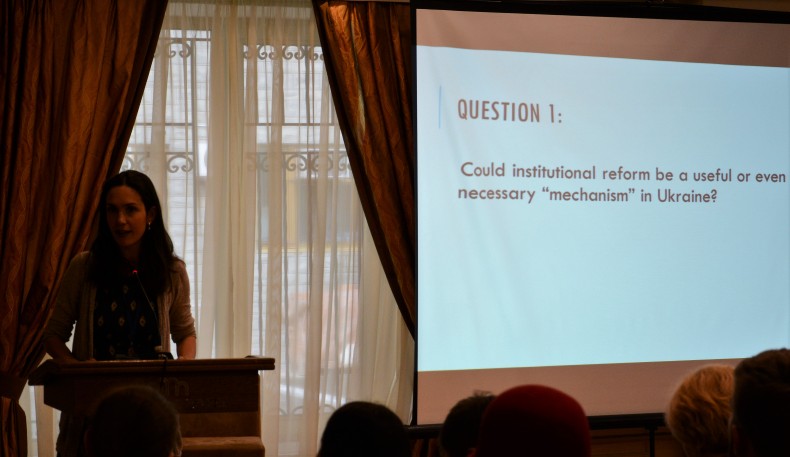
Mark Kersten from the University of Toronto continued to talk about international justice. He focused on the place of the International Criminal Court in achieving post-conflict justice. However, Mark said that the internal mechanism is important for a state; when appealing to the international justice system is not panacea.
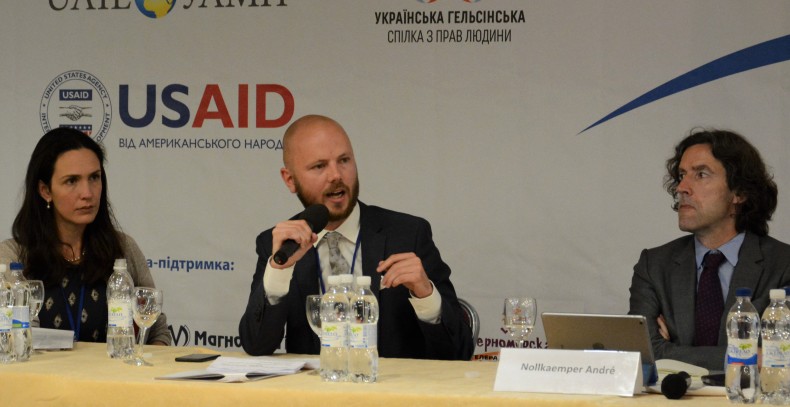
Social processes in post-conflict justice were the focus of the speech of Professor Marko Milanovic from the University of Nottingham. He noted that perception of justice depends on attitudes in society. Information, imposed for years on citizens of a country, becomes a kind of prism in relation, in particular, to decisions of the International Criminal Court. So, the role of expert opinions in a political strategy that make up vector for public opinion is important.
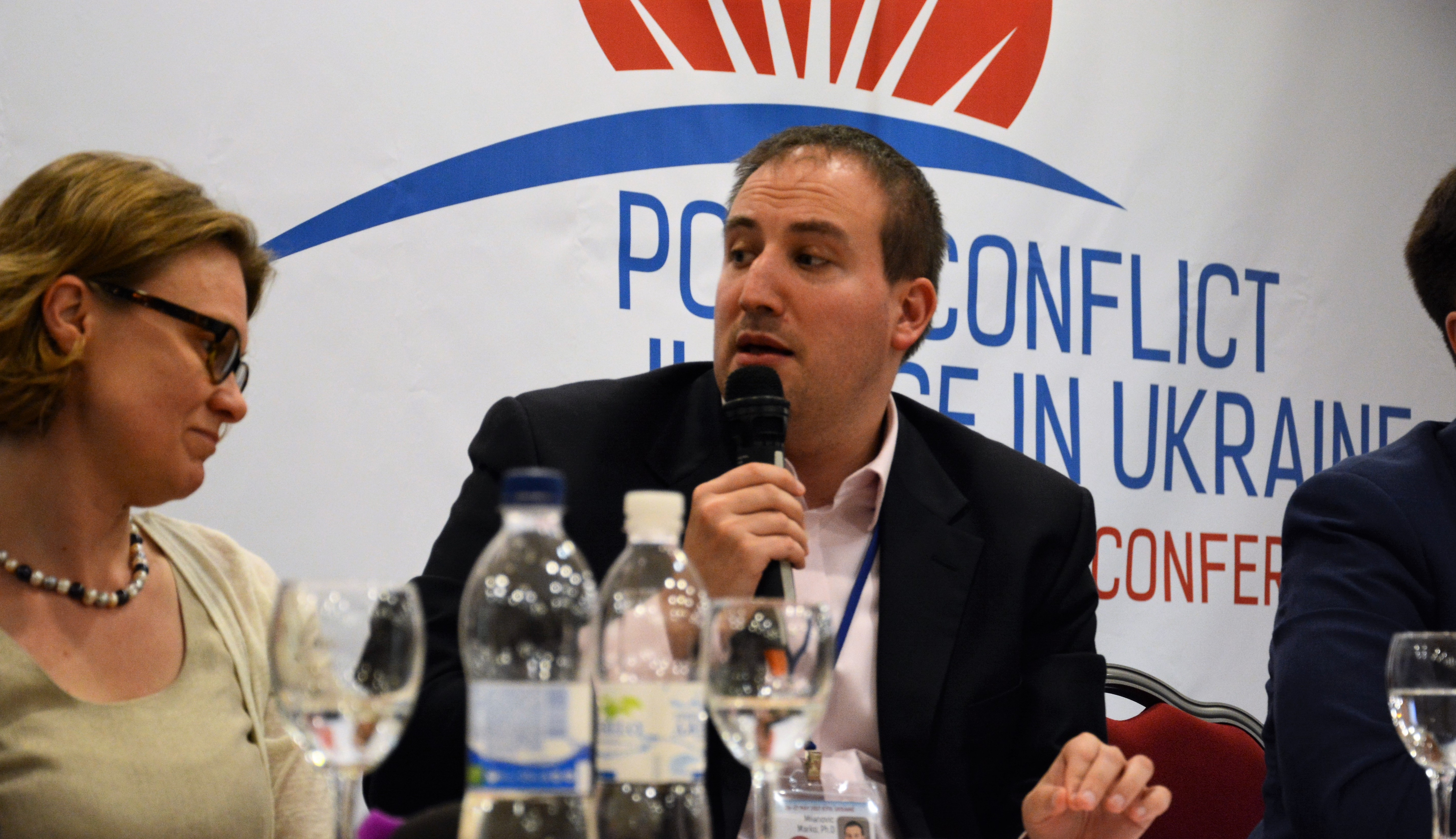
The second panel was devoted to the role of the International Criminal Court for post-conflict reconciliation in Ukraine. Iryna Marchuk, Professor at the University of Copenhagen, and Dmytro Koval, Professor at the National University “Odessa Law Academy”, made their presentations. Two aspects were disclosed at the panel: on the one hand, prospects for consideration of the situation in Ukraine by the International Criminal Court, and, on the other hand, the impact of the concept of collective memory on justice.
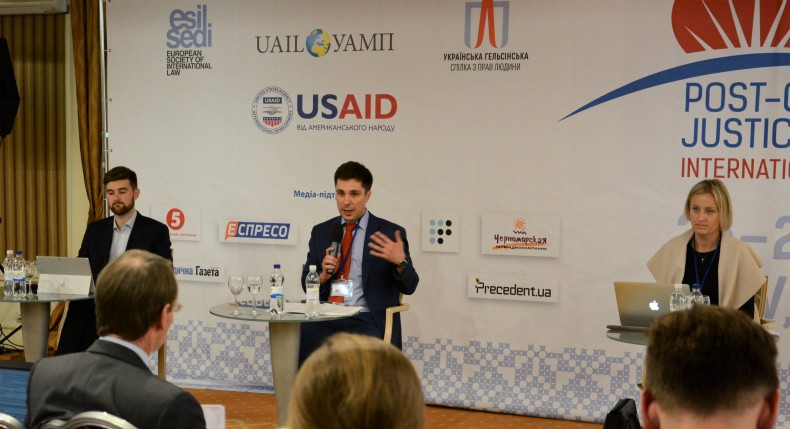
Separately, the Conference revealed issues of a truth commission in post-conflict countries. Dr. Mindia Vashakmadze said that criminal investigation could lead to a restoration of the truth. The truth commissions should establish historical ties with the full assistance of state authorities in their work. Ilya Nuzov, Lawyer of the Geneva Academy of International Humanitarian Law and Human Rights, continued this theme and drew attention to the impact of Soviet past on the events in Ukraine. In this context, the truth commission in Ukraine has become a platform to create a dialogue between victims and perpetrators of the events.
Also, the theme regarding the impact of the past on memory laws presented Uladzislau Belavusau, Senior Research at the T.M.C. Asser Institute in The Hague and Assistant Professor at the University of Amsterdam. Oleg Martynenko, an expert of the Ukrainian Helsinki Human Rights Union, said that non-governmental organizations play important role in the truth commission. Nataliia Satokhina from the Y. Mudryi National Law Academy drew attention to the importance of the truth for transitional justice.
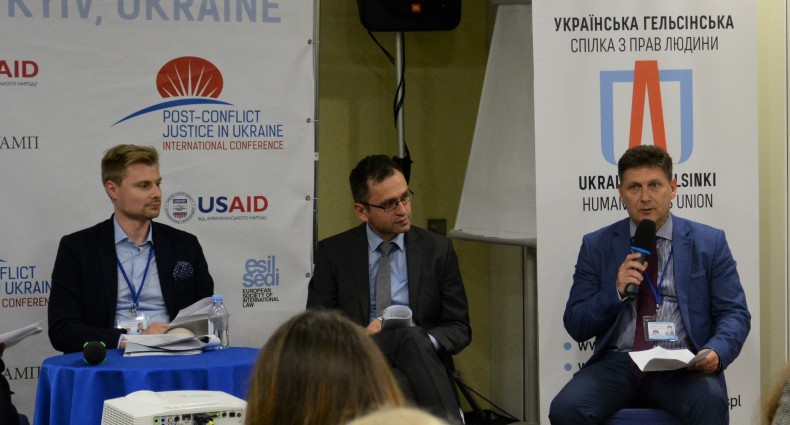
Reparations for victims of the armed conflict were discussed during a separate panel. Vito Todeschini from Aarhus University, Dr. Antal Berkes from the University of Manchester, Tatiana Antsupova, professor of the National University “Odessa Law Academy”, and Alla Blaha, an analyst at the Ukrainian Helsinki Human Rights Union, described mechanisms and possibilities of reparations in different cases of violations during the armed conflict.
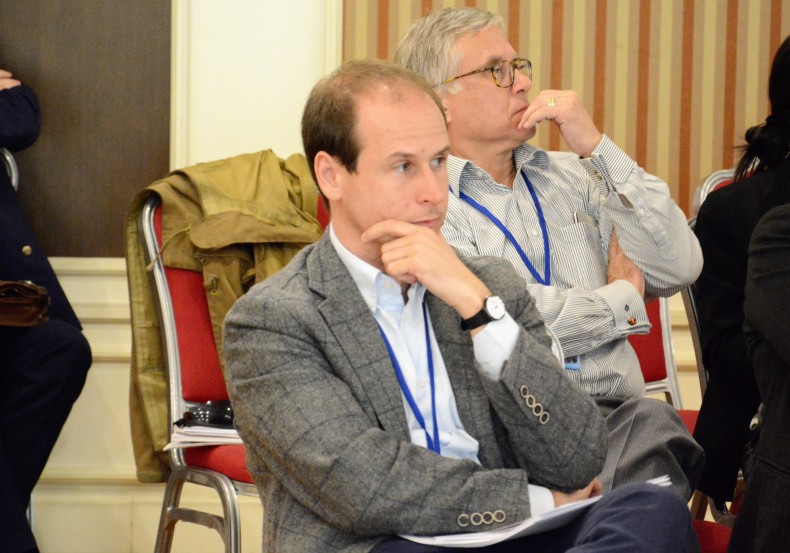
Also, a model of post-conflict justice, which may be the most suitable for Ukraine, was discussed during a separate panel. Dr. Christian de Vos from American University in Washington and Eric A. Witte, a lawyer at the Open Society Justice Initiative, presented the opinion on whether internationalization of the courts is possible in order to consider serious crimes. Lawyer Jacopo Roberto Di Sarsina talked about the process of judgments in the light of the model of Ukrainian justice. Lawyer Nikolai Bobrinsky stressed the need and importance of transitional justice for the Russian Federation as well. However, the main challenge for the process in an internal situation in the country. Professor of National University “Odessa Law Academy” Oleksii Plotnikov drew attention to key stakeholders in the process of transitional justice. According to him, the priority in this matter is not related to the state and civil society. Dr. Michail Vagias from the Hague University of Applied Sciences expressed rather pessimistic opinion on the establishing of special courts for the situation in Ukraine. According to him, the main reason for the impossibility of this process is inconsistent actions of Ukraine regarding justice.
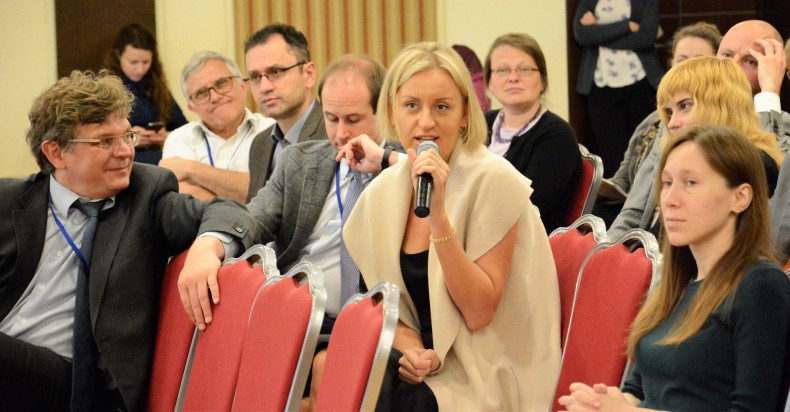
Another important event of the conference was the presentation of Sergei Sayapin, Professor at the Kazakhstan Institute of Management, Economics and Strategic Research. He announced the release of the book on the situation in Ukraine since 2014, which contains an analysis of models of transitional justice that are relevant to the current situation, the role of Ukrainian criminal law in this process and highlights the lessons for Ukraine by the example of neighboring countries. In addition, the professor stressed that the conflict in Ukraine has a direct impact on the international community: the states must choose the side to support. However, this is a challenge for international law.
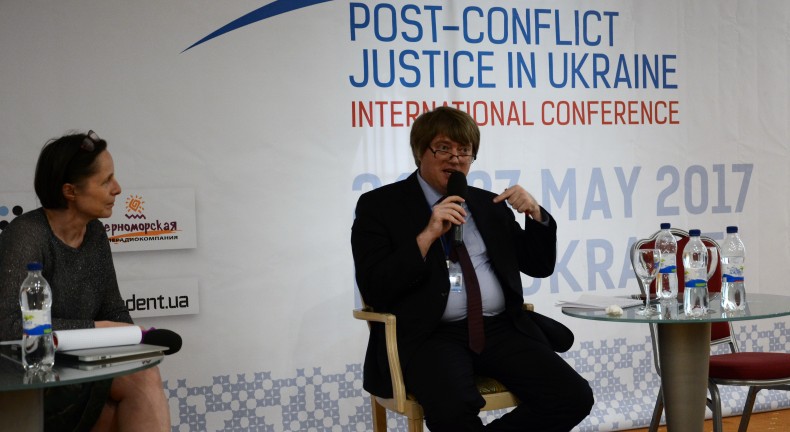
It was quite striking to discuss the positive obligations of international criminal law. Judge of the European Court of Human Rights Erik Møse shared his experience in the International Criminal Tribunal for Rwanda. He stressed that justice needs real plan and political support.
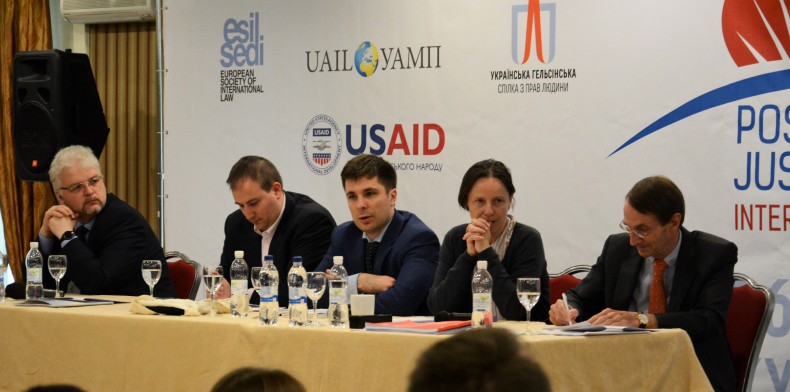
Ksenija Turković, a Judge of the European Court of Human Rights, demonstrated the evolution of the position of ECHR practices in the context of armed conflicts. Professor Larissa van den Herik in her presentation reviewed the statements of state authorities about violations of international criminal law. The emphasis was on the fact that the statements by their nature should trigger the obligation to the state and not be exclusively public speaking. Gleb Bogush, Professor at the Lomonosov Moscow State University, summed up the work of both Ukraine and the Russian Federation towards the implementation of the international criminal law, noting that both countries do not fulfill their obligations in this area.
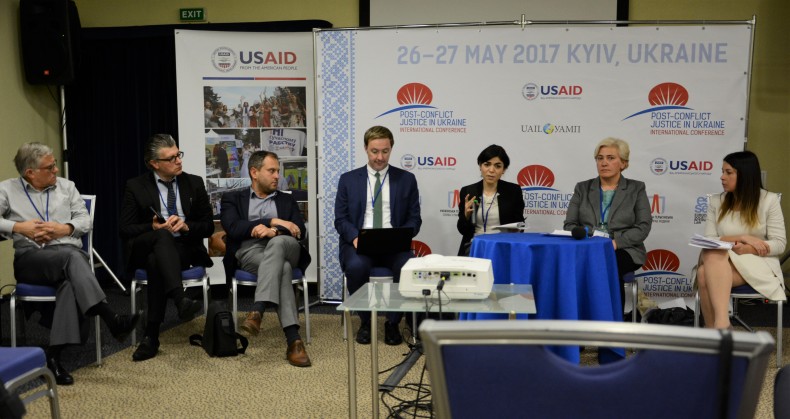
Moreover, violations of international humanitarian law and the European Convention on Human Rights were considered. Dr. Ralph Wilde from the University College London made an emphasis to the European Court of Human Rights and international complaints, including jurisdictional aspects. Lillian Apostol, the Council of Europe expert, described the role of human rights institutions in the conflict in eastern Ukraine and its possible impact on the solution of the problem. The topic of property rights violations in the light of European Court of Human Rights considered Ivan Lishchyna, the Government Agent before the European Court of Human Rights, and Gulara Guliyeva, Professor at the University of Birmingham. The relationship between international human rights law and international humanitarian law were reflected in the speech of Alessandra La Vakkara from Cardozo Law School. Moreover, John Morss, Professor at Deakin University presented the view on the situation of human rights in the crisis in terms of justice, terror, and politics.
At the same time, international humanitarian law during the armed conflict and its major violations revealed in their speeches on another panel. Asli Ozcelik Olcay from the University of Glasgow opened the panel with analysis of the processes of reconciliation and their impact on the administration of justice. Dr. Kateryna Busol spoke about the importance of protecting cultural heritage during armed conflicts. In addition, the expert in her presentation drew attention to the importance to learning international humanitarian law by public authorities, military and society, including children. The need for the effective functioning of the national system for the investigation of war crimes has been a focus in speech lawyer of the Ukrainian Helsinki Human Rights Union Nadia Volkova. Experts shared practical problems currently in the Ukrainian judicial system and identified target issues that need an urgent solution.
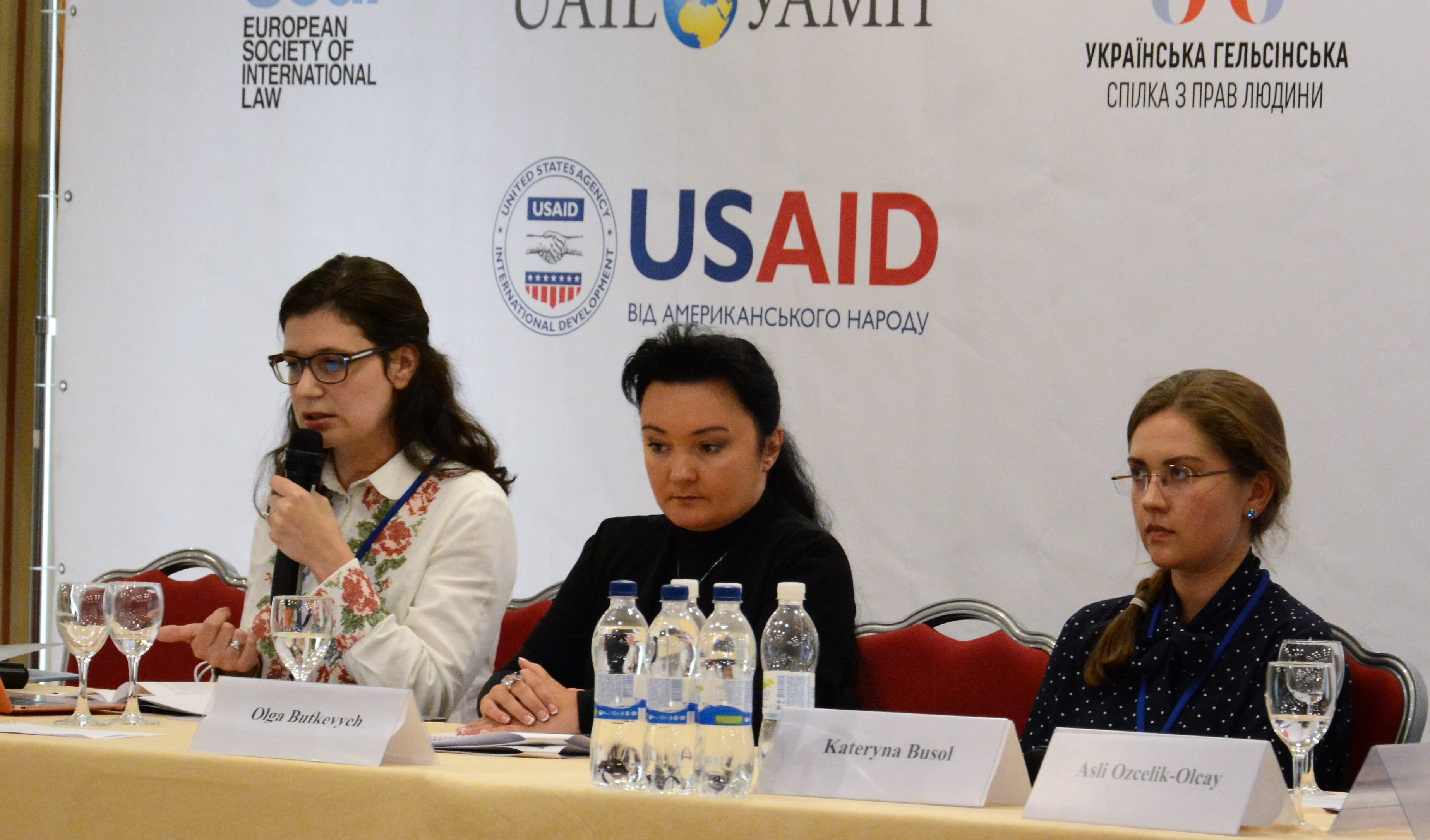
It is difficult to allocate priorities or themes that were heard from leading experts in international law. However, after the conference, the audience had something to think about.
The challenge of the armed conflict in Ukraine is a platform for the reform process towards transitional justice. In such circumstances, the truth and justice, and how to achieve them are important. Ukraine is just beginning to move in this direction, but yet one thing is clear – no need to wait for the end of the armed conflict to start conversion. In any case, tangible progress in the case will be obvious when a person and his rights will be the first link in the focus state.
For all the participants and the audience, the two-day conference “Post-Conflict Justice in Ukraine” seemed to be a quite rich event with interesting presentations. So, I want to thank the organizers for making the event possible in Ukraine, for their excellent work and dedication. I hope that this is not the last event of this nature for Ukraine.
Prepared by Alina Pavliuk, a lawyer of UHHRU
If you find an error on our site, please select the incorrect text and press ctrl-enter.

Information about extrajudicial executions of Ukrainians by the Russian military and Russian torture chambers in...
28 September 2023
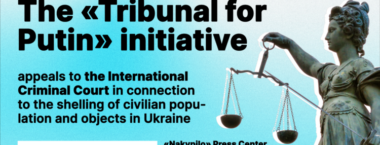
Since the onset of the full-scale invasion, the «Tribunal for Putin» initiative has recorded about...
18 August 2023
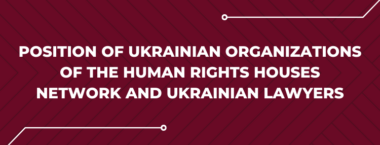
Position of Ukrainian organizations of the Human Rights Houses Network and Ukrainian lawyers on the...
17 July 2023

On June 6, 2023, the Southern Area Military Court of Rostov-na-Donu sentenced Mr.Bohdan Ziza, a...
08 June 2023